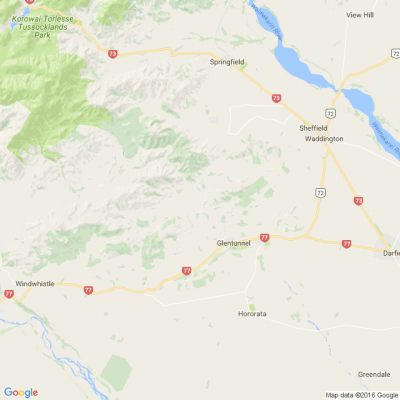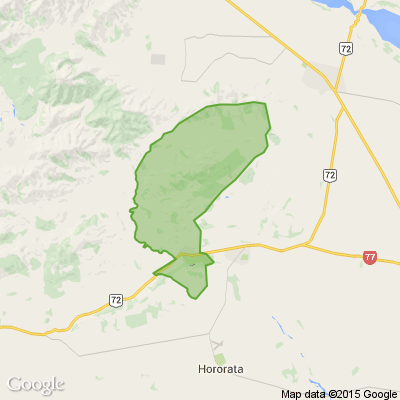Dark sky nation: Tourism minister backs move to attract stargazing travellers
By David Hill, Local Democracy Reporter
Transforming Aotearoa into a dark sky nation could attract stargazing international tourists, creating huge economic benefits, Tourism Minister Matt Doocey says.
The Royal Astronomical Society of New Zealand believes New Zealand could become a dark sky nation, an idea Doocey says he supports.
To become a dark sky nation the country would need to cut light pollution, such as outdoor lighting, to allow for greater stargazing and astronomy.
Tourism New Zealand research indicated more than 70% of people thinking about visiting New Zealand were interested in stargazing, he said.
The best times for stargazing were during the off-peak and shoulder seasons for tourism, which meant protecting New Zealand’s night skies could provide an economic boost when tourist towns were otherwise quiet.
"It is something I am keen to encourage," Doocey said.
‘‘We want to grow tourism because we know it brings jobs to rural New Zealand.
‘‘Tourism is very seasonal, so we need to be looking at how we can market and promote New Zealand during those shoulder and off-peak periods.’’
The Waimakariri MP said an economic impact report commissioned by Enterprise North Canterbury last year showed a dark sky trail would provide an economic boost in the region.
The report said a dark sky reserve could generate $4.6 million of visitor spending in Waimakariri and create up to 24 jobs.
The Oxford Dark Sky Group obtained dark sky park status in January for the Oxford Forest Conservation Area from the Dark Sky International.
Oxford Dark Sky president Raul Elias-Drago said there was no cost to the group, thanks to support from the community, the Waimakariri District Council, Oxford-Ohoka Community Board and Government agencies such as the Department of Conservation.
The group was now planning to apply for dark sky reserve status, which would incorporate the town of Oxford.
Doocey said the Oxford example showed how communities coming together could achieve economic benefits at little cost.
Enterprise North Canterbury has been working with other regional tourism organisations (RTOs) to develop a Canterbury dark sky trail.
The Aoraki Mackenzie International Dark Sky Reserve was established in 2012, while the Kaikōura Dark Sky Trust is about to apply for dark sky sanctuary status and interest is growing in other Canterbury communities.
‘‘I would encourage RTOs to think about whether dark skies should be part of their destination management plans,’’ Doocey said.
‘‘There is real potential for a ground up approach and I would be really supportive of that.’’
Elias-Drago, who is also the Royal Astronomical Society of New Zealand (RASNZ) secretary, said a national approach was needed, perhaps led by the Department of Conservation.
‘‘The Department of Conservation has been very supportive regionally,’’ he said.
‘‘The Rangiora office supported our application and other regional offices have supported other applications, but every time each regional office is doing the same thing.
‘‘If the work was done nationally, we wouldn’t have to replicate the work in every region.’’
Doocey has accepted an invitation to speak at the New Zealand Starlight Conference in Tekapo in October, which is organised by RASNZ and the Aoraki Mackenzie International Dark Sky Reserve board.
‘‘We are hoping to use the conference as a springboard to advance the discussion around becoming a dark sky nation,’’ Elias-Drago said.
Niue became the world’s first whole country to become an International dark sky nation in 2020.
■ LDR is local body journalism co-funded by RNZ and NZ On Air.
Time to Tickle Your Thinker 🧠
If a zookeeper had 100 pairs of animals in her zoo, and two pairs of babies are born for each one of the original animals, then (sadly) 23 animals don’t survive, how many animals do you have left in total?
Do you think you know the answer? Simply 'Like' this post and we'll post the answer in the comments below at 2pm on the day!
Want to stop seeing these in your newsfeed? No worries! Simply head here and click once on the Following button.

Poll: As a customer, what do you think about automation?
The Press investigates the growing reliance on your unpaid labour.
Automation (or the “unpaid shift”) is often described as efficient ... but it tends to benefit employers more than consumers.
We want to know: What do you think about automation?
Are you for, or against?

-
9.6% For. Self-service is less frustrating and convenient.
-
43.2% I want to be able to choose.
-
47.2% Against. I want to deal with people.
Have you got New Zealand's best shed? Show us and win!
Once again, Resene and NZ Gardener are on the hunt for New Zealand’s best shed! Send in the photos and the stories behind your man caves, she sheds, clever upcycled spaces, potty potting sheds and colourful chicken coops. The Resene Shed of the Year 2026 winner receives $1000 Resene ColorShop voucher, a $908 large Vegepod Starter Pack and a one-year subscription to NZ Gardener. To enter, tell us in writing (no more than 500 words) why your garden shed is New Zealand’s best, and send up to five high-quality photos by email to mailbox@nzgardener.co.nz. Entries close February 23, 2026.









 Loading…
Loading…






